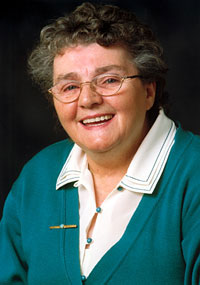2 April 2009 Edition
The Mary Nelis Column

The obscenity of academic selection
I DON’T suppose many of the children from the Shankill Road or Sandy Row attend the Royal Belfast Academical Institute.
The chairperson of the board of governors and former head of the Civil Service in the North, Sir Kenneth Bloomfield, this week outlined plans for the entrance tests for pupils to the Institute and to the other minority of grammar schools who have opted to retain academic selection.
This week, Education Minister Caitríona Ruane appealed once again to the pro-selection lobby to think of the dangers involved in perpetuating an educational apartheid system with disastrous consequences for the future of the North’s children.
She pointed out that less than 10 per cent of children in the Shankill Road area of Belfast transferred to grammar schools after sitting the 11-Plus exam. In the Sandy Row area, only 14 per cent moved on to grammar schools. In comparison, the rate in the more affluent Malone Road was 91 per cent. Overall, only 30 per cent of children in the North progress to university compared with more than 70 per cent in the South.
One doesn’t have to be a rocket scientist to understand that the minister was clearly stating that the ideological divisions created by the 11-Plus had more to do with class than with promoting the highest standards of educational achievement and equality of opportunity.
Less than 10 per cent of children in the Shankill Road area transferred to grammar schools after sitting the 11-Plus
Caitríona Ruane knows only too well that the legacy of the 11-Plus has been the segregation of children in the North according to social class.
The red herrings of religion and politics have obscured the naked politicking by both the unionists and the SDLP during Assembly debates on the issue. Both parties trying to cover up their cowardice in refusing to take on the education ministry.
One wonders how the parents and children of the ‘under-achievers’ in unionist working-class areas must feel when their political representatives in the Assembly treat ministerial education question time as an opportunity for political point-scoring rather than address the serious educational disadvantage of the majority of children in their constituencies.
One newspaper reported unionist parties’ participation in Assembly debates as “jokes that would have been met with silence at a comedy club”. One DUP politician referred to Caitríona Ruane’s multilingual ability as “gibberish”.
The ignorance and apparent lack of intelligence from many of the unionist representatives may account, to a degree, for the high failure rate in the 11-Plus, of the children of their constituents.
However, it has served to put in perspective the undisputed evidence put forward by Caitríona Ruane and other educationalists that selection at the age of 11 is discriminatory and not fit for purpose in the 21st century.
At the recent Irish National Teachers’ Organisation Northern conference, a majority of teachers described the retention of academic selection and entrance tests as “cruelty to children” whose only purpose was to perpetuate the reputation of grammar schools.
It is disappointing, but not surprising, that the Catholic Church Commission for Catholic Education (whose report was launched this week) have chosen to sit on the fence rather than accept the minister’s interim proposals for phasing out the educational obscenity of academic selection.
To pretend that academic selection needs to be retained, even for the next two years, for the sake of children is dishonest. It’s for the sake of our adult, class-riddled society and the Catholic Church Commission should have the decency to state that.


